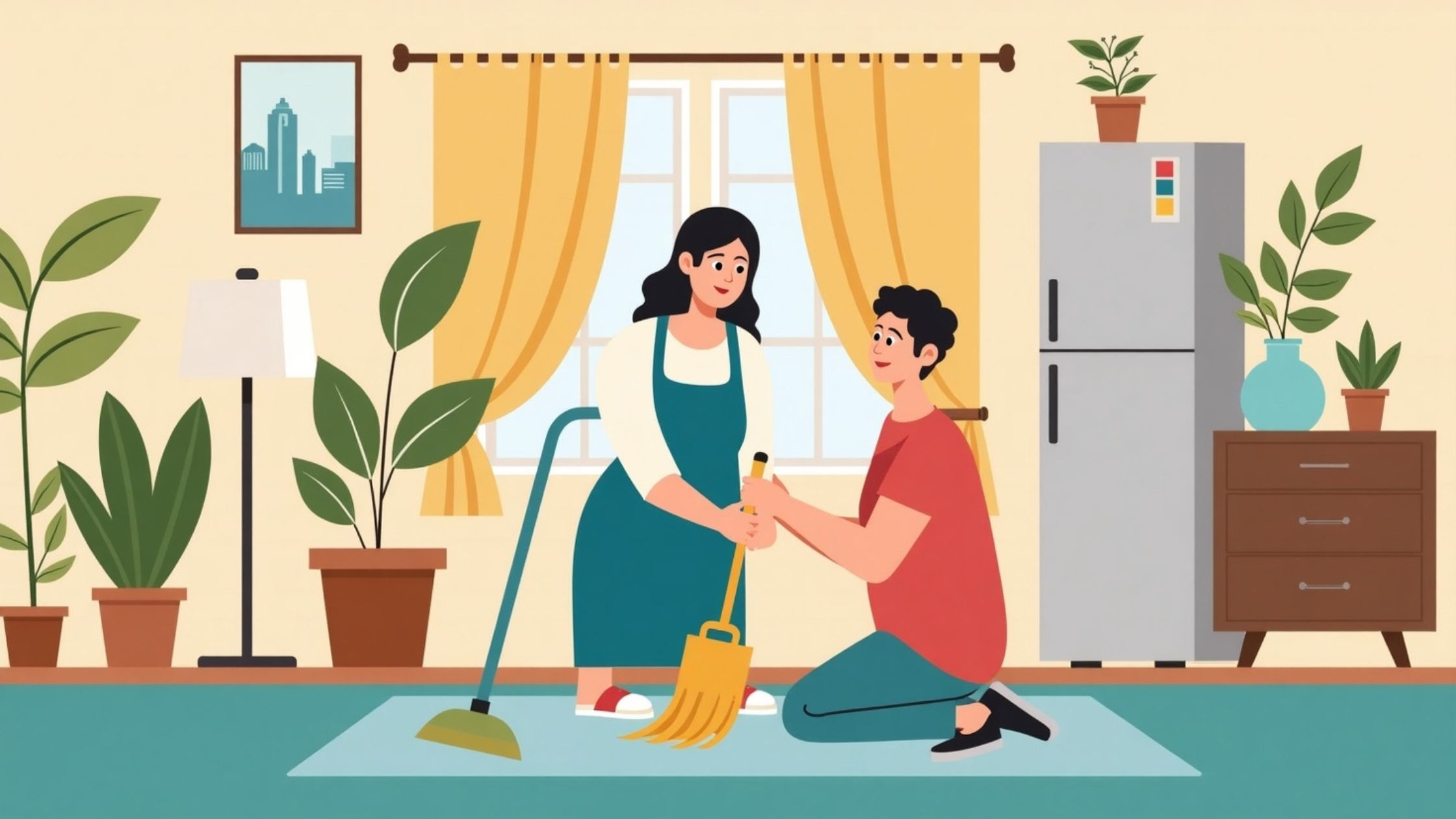If you live in Victoria and need help with daily chores due to disability, the NDIS can support you. This guide explains what housework tasks are funded and how to access the right home support to keep your life comfortable and independent.
Keeping up with housework can be challenging when you’re managing a disability. Fortunately, if you live in Victoria, the National Disability Insurance Scheme (NDIS) offers funded support to help you live safely and comfortably at home. This guide explains what household tasks are covered, how to access this support, and what you can expect.
Why the NDIS Supports Housework Help
A clean and safe home plays a big role in wellbeing. For people with disabilities, some household tasks might be difficult or unsafe to manage alone. The NDIS recognises this by funding “reasonable and necessary” help with chores that relate directly to your disability. This assistance is designed to support your independence and ease daily living, not to cover everyday cleaning for the whole household.
What Chores Can the NDIS Fund?
If you’re an NDIS participant in Victoria, the scheme can fund support for essential household tasks linked to your goals and your unique health or mobility needs, such as:
Cleaning: Vacuuming, sweeping, mopping, dusting, and wiping surfaces you’re unable to reach or manage safely.
Bathroom & Toilet Cleaning: Keeping things hygienic and safe, reducing slip and fall risks.
Laundry: Washing, drying, folding, and ironing clothes you use daily.
Changing Bed Linen: Swapping out sheets and making the bed.
Dishwashing: Washing up or loading/unloading the dishwasher.
Meal Prep Support: Help with basic meal preparation if you have difficulty, but not daily cooking for a whole household.
Garbage Take-Out: Assisting with putting out bins and bringing them back in.
Tidying & Light Organising: Keeping personal spaces neat and navigable, especially if clutter could be a hazard.
Some Light Outdoor Chores: Simple tasks like sweeping paths or watering—if they’re essential for safety.
What Isn’t Usually Covered?
Major gardening, yard work, or home renovations.
Repairs and maintenance (e.g., fixing leaking taps).
Extensive cleaning that goes beyond your own needs or spaces (like cleaning up after other household members).
NDIS support is about your independence and safety—so tasks must directly relate to your disability and daily living needs.
How Can You Access Home Help in Victoria?
Living in Victoria means you have access to a strong community of NDIS-approved providers, including support workers who specialise in home help. Here’s how to get the support you need:
1. List the Tasks You Need Help With
Think about your day-to-day routine. Which chores are hardest? Where do you feel unsafe or overwhelmed? Jot these down—this list will help at your NDIS planning meeting.
2. Speak to Your NDIS Planner or LAC
At your planning or review meeting, share your list and explain how your disability gets in the way. Be open—your Planner or Local Area Coordinator is there to listen and help advocate for the right supports.
3. Get Housework Support in Your Plan
If approved, the support will show up as “Assistance with Daily Living” within your NDIS plan. This gives you funding to access the help you need, how and when it suits you.
4. Choose a Provider That Suits You
Pick NDIS-registered or verified home help providers in Melbourne or across Victoria. Whether you prefer the familiarity of the same carer every week, or want flexibility, you can find a support worker who fits your lifestyle.
5. Review Annually
Life changes, and so can your needs. Don’t hesitate to request a plan review or chat to your planner if you want to adjust your amount of help—especially if your health, schedule, or home life shifts.
Real-World Examples
Rose from Geelong: NDIS helps with her weekly laundry and kitchen cleaning. That means more time with her grandkids and less worry about fall risks.
Maninder in Melbourne: Support workers assist with changing bed linen and cleaning the bathroom—giving both him and his carer partner real peace of mind.
Jess in Bendigo: Her plan includes help with dusting, vacuuming, and hanging out washing, so she can focus on work and catching up with mates.
Quick Reference Table: What the NDIS Covers at Home
| Household Task | Funded by NDIS? | Notes |
|---|---|---|
| Vacuuming & mopping | Yes | For areas used regularly by the participant |
| Laundry | Yes | Clothes washing, drying, folding |
| Bathroom/toilet cleaning | Yes | Key for hygiene and safety |
| Meal prep support | Sometimes | For disability-related meal prep, not daily family meals |
| Grocery shopping | Sometimes | If it’s disability-related and you can’t go alone |
| Gardening/yard work | No | Unless it’s essential for safety |
| General repairs | No | Repairs and maintenance not usually included |
| Tidying rooms | Yes | Focus on spaces used by the participant |
Frequently Asked Questions
Q: Can I get a cleaner through the NDIS?
Yes, if cleaning is tied to your disability and listed as a support in your plan. The support worker does essential cleaning for you, not just the whole household.
Q: Can help include shopping or errands?
Sometimes! If those tasks are needed for you to live safely and independently at home and in the community, chat with your planner about options.
Q: How do I get more help if my needs change?
Request a review of your plan. Be clear about why your current supports aren’t enough, and what would help you more.
Your home is your comfort zone. With the right NDIS supports in Victoria, everyday chores can become more manageable—so you can live more freely, do what you love, and spend your energy where it truly counts. If you’re not sure what you qualify for, reach out to your local NDIS provider or planner. Support is there to help you shine at home and in your community.






